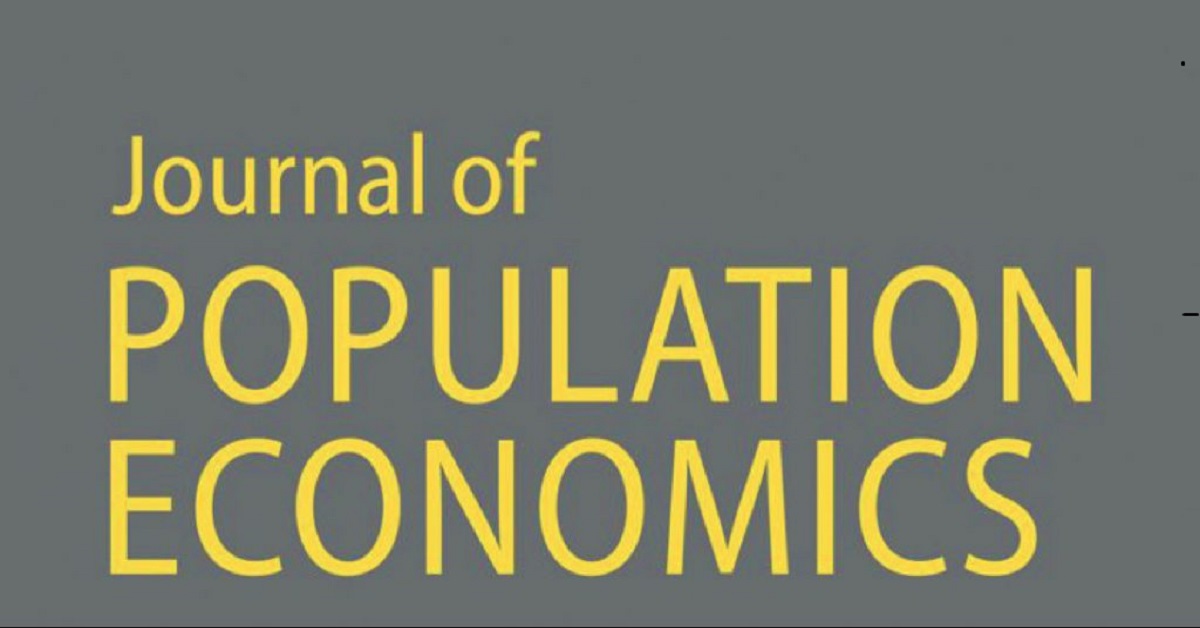Issue 1, 2021 of the Journal of Population Economics is already published online. See below the list of articles and access links to read the contributions.
November 19, 2020 (Thursday); (2-5 pm CET):
Journal of Population Economics Online Workshop (Webinar).
Hosted by UNU-MERIT. Maastricht .
Open to the general public.
Mark your calendar. Detailed agenda and registration information will be provided in time through the GLO & POP @ UNU-MERIT websites.
AGENDA:
Presentation of the Kuznets Prize 2021
Highlights of Issue 1/2021
– Lead article
– 4 articles on Covid-19
Meeting with the authors, prize winners and editors.
*******
LEAD ARTICLE
Štěpán Jurajda & Dejan Kovač: Names and behavior in a war — READLINK: https://rdcu.be/b9xkX
HOUSEHOLD
Lixing Li, Xiaoyu Wu & Yi Zhou: Intra-household bargaining power, surname inheritance, and human capital accumulation — READLINK: https://rdcu.be/b9xkY
Gigi Foster & Leslie S. Stratton: Does female breadwinning make partnerships less healthy or less stable? — READLINK: https://rdcu.be/b9xk0
MIGRATION
Jakub Lonsky: Does immigration decrease far-right popularity? Evidence from Finnish municipalities — OPEN ACCESS: PDF
Sandra V. Rozo, Therese Anders & Steven Raphael: Deportation, crime, and victimization — READLINK: https://rdcu.be/b9xlf
Cristina Bellés-Obrero, Nicolau Martin Bassols & Judit Vall Castello: Safety at work and immigration — OPEN ACCESS: PDF
COVID-19 (Springer presents all Covid-19 articles open accessible)
Fabio Milani: COVID-19 outbreak, social response, and early economic effects: a global VAR analysis of cross-country interdependencies — OPEN ACCESSIBLE; READLINK: https://rdcu.be/b9xlh
Domenico Depalo: True COVID-19 mortality rates from administrative data — OPEN ACCESSIBLE; READLINK: https://rdcu.be/b9xlj
Luca Bonacini, Giovanni Gallo & Fabrizio Patriarca: Identifying policy challenges of COVID-19 in hardly reliable data and judging the success of lockdown measures — OPEN ACCESSIBLE; READLINK: https://rdcu.be/b9xll
Luca Bonacini, Giovanni Gallo & Sergio Scicchitano: Working from home and income inequality: risks of a ‘new normal’ with COVID-19 — OPEN ACCESSIBLE; READLINK: https://rdcu.be/b9xln
KUZNETS PRIZE
2021 Kuznets Prize awarded to Yun Qiu, Xi Chen, and Wei Shi

Ends;











